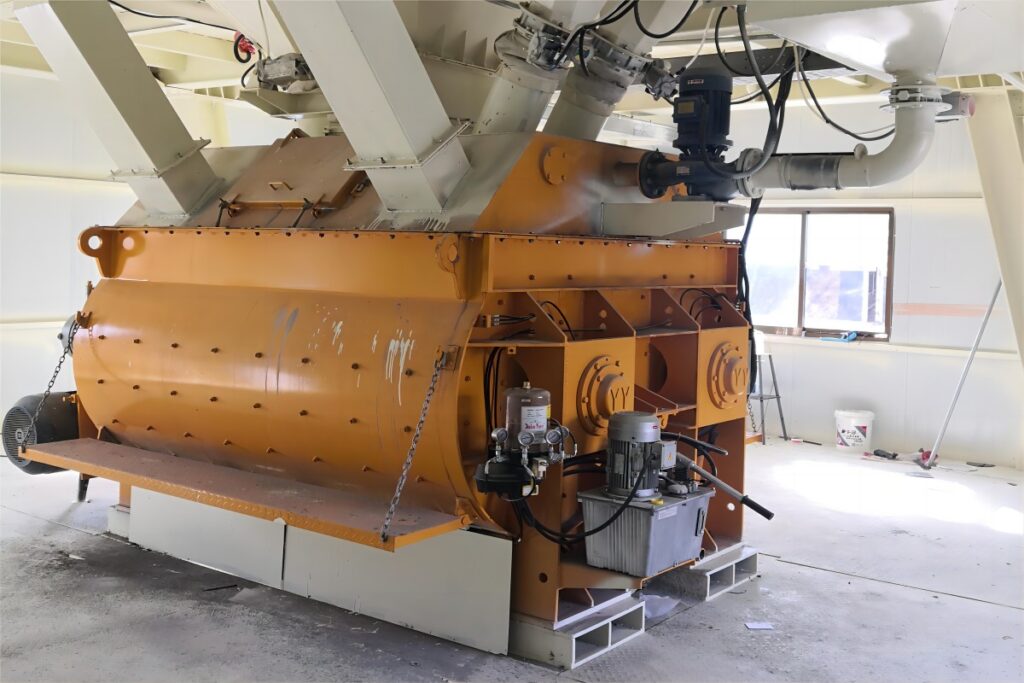Maintaining concrete mixing plants is essential for ensuring optimal performance and prolonging their lifespan. Regular maintenance not only prevents breakdowns but also enhances efficiency and reduces downtime. In this blog post, we’ll explore the importance of regular maintenance, common maintenance tasks and their frequency, troubleshooting tips for addressing issues, and the significance of preventive maintenance in minimizing downtime and repair costs.
Importance of Regular Maintenance:
Regular maintenance is vital for the long-term health and performance of concrete mixing plants. It helps:
Prevent equipment failure and breakdowns, minimizing downtime and production delays.
Ensure the safety of plant operators and personnel by identifying and addressing potential hazards.
Maintain the quality and consistency of concrete output, reducing the risk of defects or failures in construction projects.
Prolong the lifespan of equipment and components, avoiding costly replacements and repairs.
Common Maintenance Tasks and Their Frequency:
To maintain optimal performance, concrete mixing plants require various maintenance tasks to be performed regularly. These tasks include:
Cleaning: Removing debris, dust, and buildup from equipment, surfaces, and components. Frequency: Daily or as needed.
Lubrication: Applying lubricants to moving parts and components to reduce friction and wear. Frequency: Weekly or as recommended by manufacturers.
Inspection: Conducting thorough inspections of equipment and components to identify signs of wear, damage, or malfunction.
Frequency: Regularly scheduled intervals (e.g., monthly, quarterly).
Calibration: Calibrating measuring instruments and sensors to ensure accurate batching and mixing.
Frequency: Periodically or as recommended by manufacturers.
Troubleshooting Tips for Common Issues:
Despite regular maintenance, concrete mixing plants may encounter common issues that require troubleshooting. Some troubleshooting tips include:
1.Identifying and addressing leaks in pipelines, valves, or fittings promptly to prevent material wastage and contamination.
2.Checking electrical connections and controls for loose connections, damaged wires, or faulty components.
3.Investigating abnormal noises, vibrations, or fluctuations in equipment operation and taking corrective action.
Importance of Preventive Maintenance:
Preventive maintenance plays a crucial role in minimizing downtime and repair costs by:
1.Addressing potential issues proactively before they escalate into major problems.
2.Extending the lifespan of equipment and components through regular inspections, lubrication, and calibration.
3.Improving overall reliability and efficiency, leading to increased productivity and profitability.
Conclusion:
Effective maintenance is essential for ensuring the optimal performance and longevity of concrete mixing plants. By prioritizing regular maintenance tasks, troubleshooting common issues, and implementing preventive maintenance strategies, plant operators can minimize downtime, reduce repair costs, and maintain consistent production quality. Investing time and resources in maintenance pays dividends in the form of improved efficiency, reliability, and safety.


